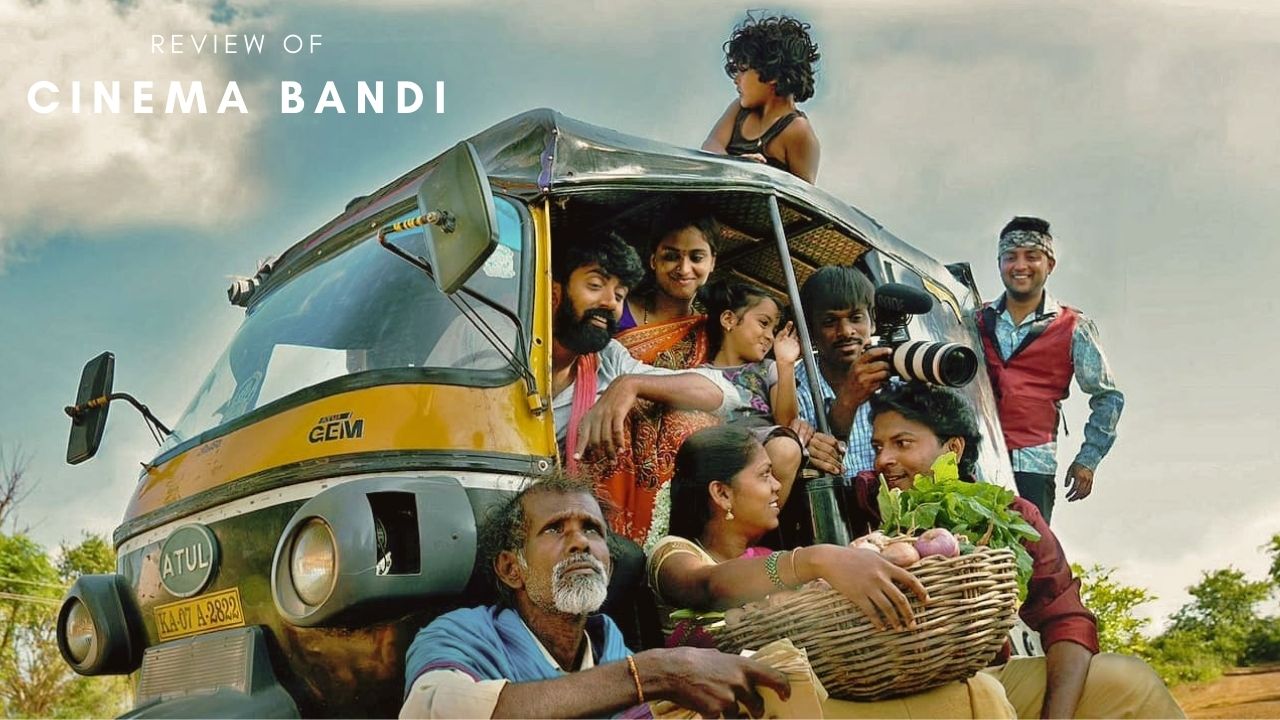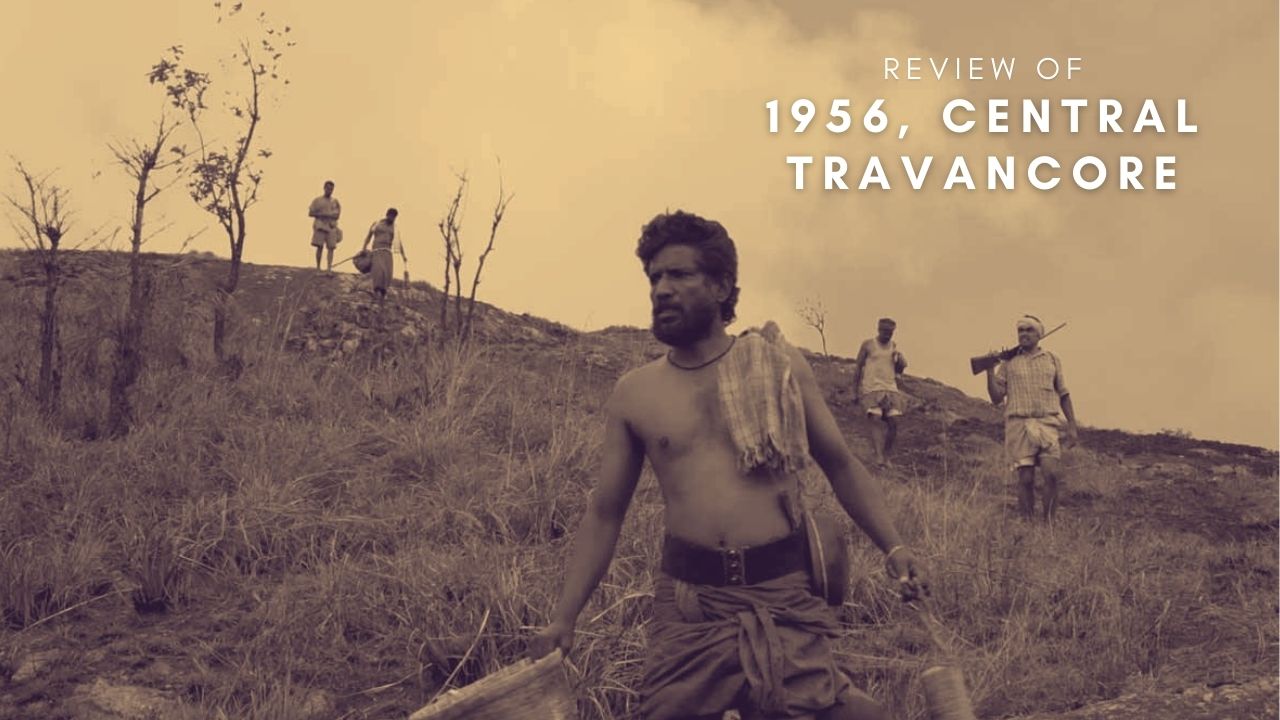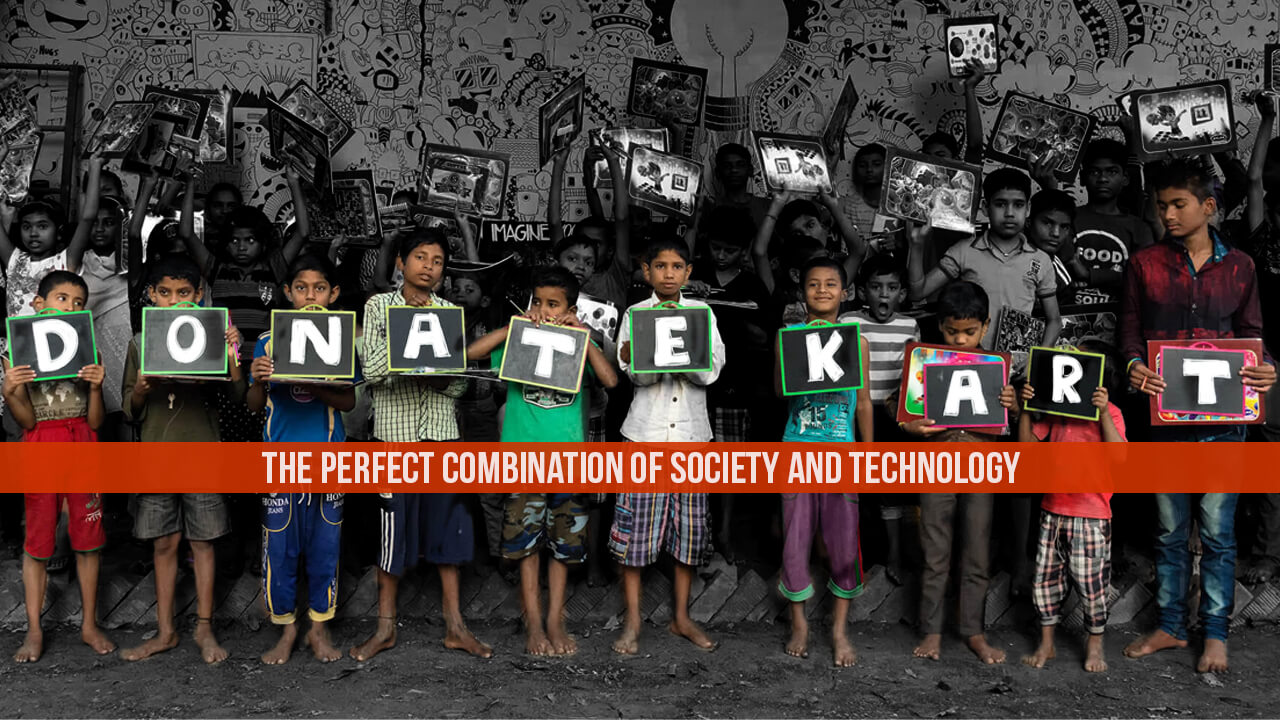
When Social Responsibility Meets Technology And Innovation
We live in a society which thrives to make a difference in the persisting manner of life. In doing so, we reflect a hope which seemed to have been lost a decade back. Yes, there was always a backbone of a sleuth of organisations which catered to the greater good, regardless of the commercial trappings of privatisation. But, one fortunate development, in the last few years, is the palpable change we can see in the way we try to help each other. Agreed that there have been drastic and shameful developments, which are being discussed and debated upon social platforms, quite so often now. However, I feel that such visibility of societal disparity has led to a certain amount of belief and strength, not to mention solidarity amongst those who feel responsible towards bettering the world. The actions, the tools and the resources, seem to move in a more quicker and efficient manner. Facilitating such movement is our interviewee company, which goes by name Donatekart.
Donatekart, as a social commerce platform, appeals to the technological ease of contributing material needs to the downtrodden. The interface, as you would see, is designed to be familiar to anyone accustomed to online shopping. Only within this portal, you aren’t just buying for yourself. You are lending a helping hand in providing for the community. We, therefore, got talking to the mind behind Donatekart, Sandeep Sharma to know more about the thought, ideology and workings of this wonderful platform, which recently won Nasscom Social Innovation Award – 2018, and were presented the award by the Honorable IT minister of Telangana state – K.T.Rama Rao during World Conference On Information Technology, held last week here in Hyderabad.
When we look at the term “Donatekart” we are automatically driven to an overall idea that it represents both Donations and eCommerce. Could you explain to us what exactly the word means and how does it stand apt for the work you take up?
Donatekart is a hybrid of a crowdfunding and eCommerce. At Donatekart we are trying to bring in transparency in donations made to charities by replacing monetary contributions with product donations. As we are facilitating donations via eCommerce model, we want to unveil the same to any layman in our company name. By the word “Kart” people can easily relate to us as an eCommerce site and with “Donate” prefix to kart donor gets a clear idea of what we do.
The idea of Donatekart was initiated when we were working in Chennai flood relief activity with the organisation GOONJ. Working in such a grievous situation we have realized that most of the people don’t donate the products that are in need of the hour but they just discard the material that is of no use for them. On the other hand, we have seen few people who are really interested to donate and using different ways in donating products that are in need. Some of the people used e-commerce websites like Flipkart, Amazon, BigBasket to order rice/groceries/biscuits, sanitary pads etc and they kept the delivery address of the Goonj collection centre. This way they are giving products in need as a charity instead of money. We were overwhelmed to see the way people are using technology to do charity and later on we felt that this similar solution can be applied to NGOs as well to procure products that are in need to them.
To have a look back at the journey you’ve had thus far with “Donatekart” what do you think truly worked in your favour and what were the biggest hurdles you had faced along the way?
At Donatekart, we work with a vision of bringing transparency in philanthropic space and thereby inculcating the culture of giving. Donatekart is a first of its kind platform which is letting donors to directly pay for products instead of money. All other platforms existing in the market deal with cash donations. Just graduating out of NIT, Nagpur and working on building the website, we were not sure on how NGOs would react to this new model of crowdfunding. Do they prefer in-kind donations over cash donation from their donors? A lot of such questions were revolving in our minds. But things went well in the last 16 months and we have onboarded 250+ NGOs. As far as donors are concerned we are pretty sure Donatekart will add a lot of value to their donation as they can see where their money is spent. One thing that helped us is Government’s initiatives like demonetisation and other efforts to promote digital cash brought money online, which is necessary for crowdfunding. Many NGOs launched campaigns during demonetisation to raise funds online as liquid cash is inadequate for donations.
On the other side of this, there are few NGOs who are very reluctant to crowdfunding. These organisations were very sceptical about raising funds on third-party sites like Donatekart fearing the misuse of their donor’s data for other campaigns. Also, few well-established organisations are comfortable getting funds from CSR entities, we tried explaining them the need of having individual donors backing up the project. We at Donatekart believe raising small amounts from large donors base will benefit NGOs on a long run when compared to raising from one CSR firm. Each individual donor is going to be an asset for the organisation, they would back the NGO whenever there is a need. Because social work is all about bringing all like-minded people under one umbrella for the greater good.
Often times we see that people are sceptical about Donations and Charities especially in our country. They wouldn’t donate, contribute to any cause just like that unless they have an emotional or personal connection to it. How then does “Donatekart” take care of this scepticism?
In India, there are 3.1 million Not for Profits which is double the number of schools and 250 times government hospitals i.e., effectively there is one NGO per every 322 people. Given these statistics i.e., when a lot of Organisations are working for the development of the underprivileged, INDIA should be a country seeing more development than what it is now. So it is evident that quite a lot of NGOs are reaping up funds and misusing them. In this polluted philanthropic space, even credible organisations are finding difficulties to raise funds.
Also when donors see basic product requirements like rice, sweaters, blankets, sanitary pads etc., people get emotionally connected to them. They can correlate what difficulties underprivileged face in the absence of these products. For instance, Sanitary pads in every campaign were entirely procured and most of the donors donating them were women.
On the other side of the spectrum, Indian mindset is such that we never like asking for donations for the fear of judgement. “Donatekart” thus is encouraging people to inculcate the habit of Donation in kind. How do you manage to do that?
Campaigns on Donatekart are run by different Not for Profit organisations working in various sectors like education, women empowerment, medical etc. The campaigner’s pitch for donations with an aim to provide a better life to underprivileged who can’t earn on their own. Asking for others well-being is something which people don’t hesitate to do, nor they should especially when beneficiaries are children from economically weaker sections or old age people, who are not capable to work and earn on their own. For beneficiaries who can work, we would rather have campaigns aiming to provide Livelihood opportunities, like providing sewing machines.
Giving in-kind is something which we are comfortable with and have inherited from our ancestors. Our grandfathers and fathers used to give bricks/cement for construction of temple/community hall or ration items for annadan or sponsor prizes in competitions. This in-kind donation is our way of giving to charities from many years but in recent times with people moving to far cities and getting occupied with their own lives, they couldn’t take out time to buy products and donate.
With leveraging technology and people’s acquaintance using eCommerce sites, Donatekart brings this INDIAN way of giving to social causes online. We update the donors on the product utilisation and keep them engaged with the organisation.
We are trying to inculcate the culture of giving in INDIA by democratising the donations to charities i.e., a donor can contribute products varying from 1 Rs eraser to medical equipment worth lakhs of rupees.
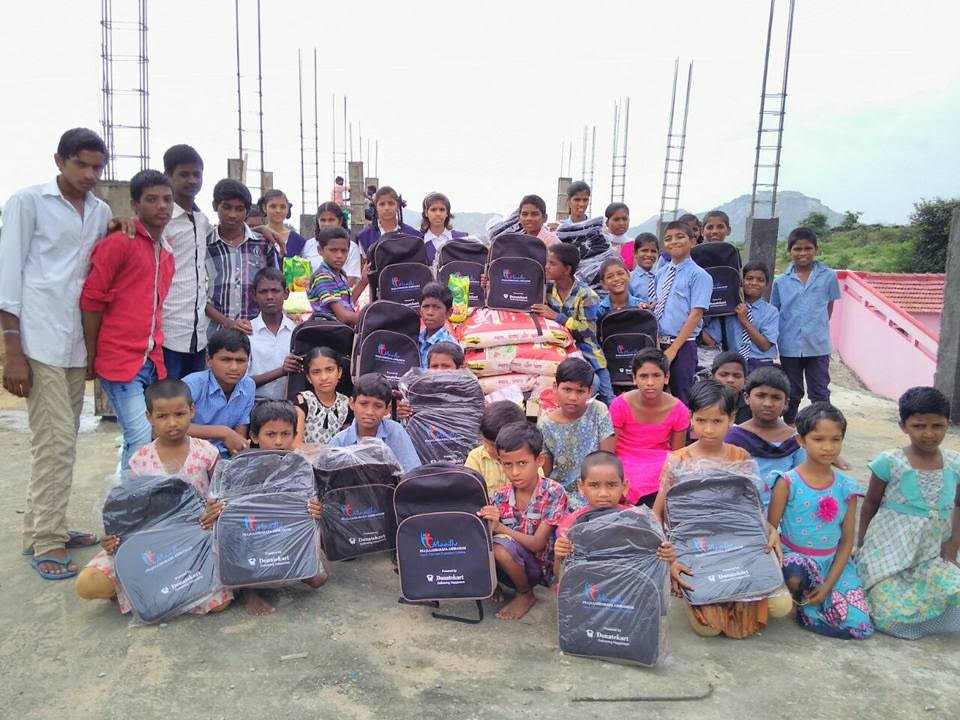
Could you tell us something about your team and partners who ensure that Donatekart delivers on its promise time and again?
We are a young 8 member team all passionate to equip Not for Profits with our expertise and help them raise in-kind donations from individual donors. I and my co-founder Anil started Donatekart just after our graduation from NIT, Nagpur ( 2016 graduates ) leaving high paying job offers. Anil’s brother helped us in developing the website and a web design firm from Indore are giving us pro bono support for the front-end of site. Sarang looks after our procurement and logistics of products, he joined our team in July 2017 leaving his campus placement from ICT, Mumbai (popularly known as UGCT, an alma mater for Mukesh Ambani and many scientists and industrialists ). We all are on a vision to inculcate a culture of giving in INDIA through our transparent giving portal.
Our vendor partners play a vital role in delivering the products to the NGOs doorstep once the campaign ends. Whenever there is a chance we try to procure items from self-help groups or small-scale industries thus giving them a livelihood opportunity. We have some campaigns aiming at creating this double impact benefiting both the recipients of products and vendors. We have raised 1 million sanitary pads till date, spread over various campaigns and most of them are procured from Vatsalya foundation, Vadodara – Sakhi Sanitary pads.100’s of women who manufacture them got benefited with our orders. For Donatekart, the social impact is of utmost priority but not the profits we make.
What have been your greatest achievements to date at this point in your journey? In taking DonateKart forward, which cities, locations and NGO’s have been pivotal?
In these 16 months since our inception, we got an opportunity to work with 250 + NGOs from all over India, across various sectors. 5000+ unique donors channelized 10 lakhs products worth Rs 1.5 Crores. Many organisations have done multiple campaigns on a monthly or quarterly basis, which clearly shows the value we bring to them as a platform.
Donatekart bagged a couple of awards. We were the runner-ups of Azim Prem Ji’s Social innovation Idea Challenge conducted in Oct 2016 (Website was not live then, we received an award for the IDEA itself). We are incubee (from Feb’2017) in Zone Startups India, a startup accelerator supported by Bombay Stock Exchange and Government of India.
We were the winners of Nasscom Social Innovation forum awards ’2018 under financial inclusion category out of 2000 odd entries all over India for this competition. Our team received the award from Honourable IT Minister, Telangana State – K.T.Rama Rao garu during World Conference of Information Technology conducted in Hyderabad.
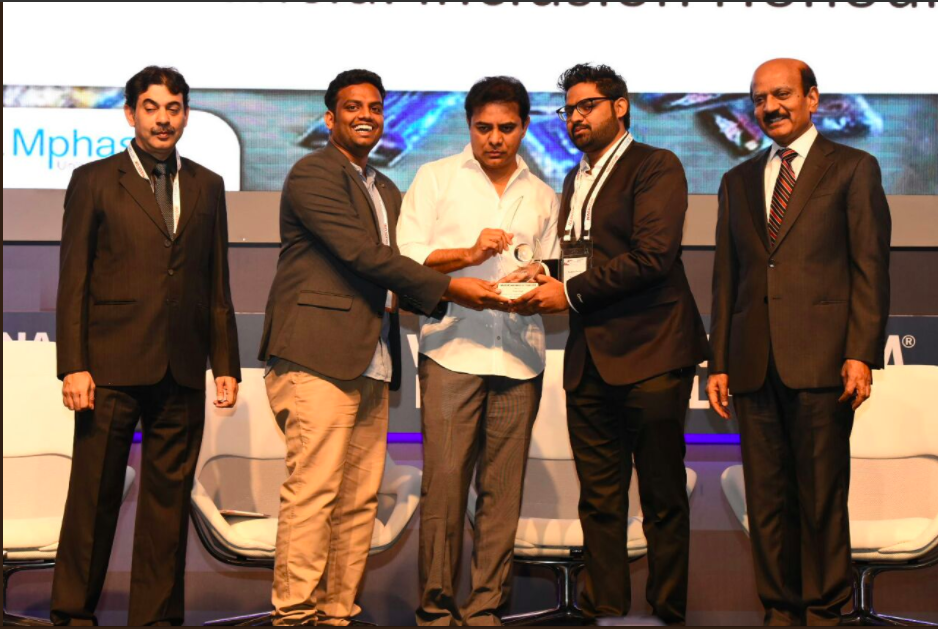
Lastly, where do you see Donatekart shaping up going forward let’s say 5 to 7 years down the line? And to someone exploring entrepreneurial journey with social causes, what do you think is the best way of formulating a strategy. What are few points that one has to keep in mind which balances social cause and technology?
We see a day where every Indian contributes at least 2% of their income for social causes. Currently, only 28% of people contribute to charities in India, which is quite less when compared to other countries. Bain India Philanthropy report states that the lack of transparency is hindering the growth of giving population and we at Donatekart are trying to solve the same issue to achieve our vision. To make this happen we need to promote a lot of individual campaigns i.e., mobilizing individuals to launch campaigns on their special days like birthdays, anniversaries to support charities/social causes. Also, Many NRIs/PIOs would love to give back to the community or village they are from, which can be done using crowdfunding. In 5 years we aim to reach 15,000 campaigns and 1 million donors supporting them, thus impacting 5 lakh lives.
People see profit-making enterprises in social space as culprits looting philanthropic capital. So enterprises should have a larger vision, more focused on impact creation rather than making profits. Only then social start-ups can gain support from their stakeholders.
That was Donatekart and its beautiful idea to bring about a sustainable social change, in charitable giving. We urge you to check their work and portal here and as Sandeep Sharma says, try to inculcate a habit of caring. Thank you.

